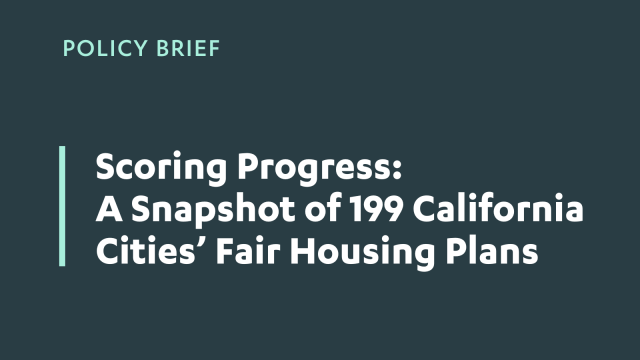Beyond Demolition: Examining RSO Loss and Replacement in Los Angeles
This research examines the demolition of units under the Rent Stabilization Ordinance (RSO) in the City of Los Angeles, and analyzes their replacement through policy programs that incentivize housing development such as Executive Directive 1, the Transit Oriented Communities program, and the California Density Bonus. The study uses data from departments in the City of Los Angeles and informational interviews with the Los Angeles Housing Department to evaluate patterns of redevelopment and tenant protections under State Bills 8 and 330.
Findings reveal that while redevelopment has produced a 195% net increase in housing units replacing RSOs, affordable housing gains remain modest with a 5% increase. Only 26% of RSO removals demonstrated through Ellis Act filings are tied to known replacement development projects. Most replacement units are designated at market-rate, and the majority of income-restricted affordable replacement units are priced for households earning up to 80% of Area Median Income. Additionally, no tenants have successfully exercised their Right to Return, due to redevelopment delays, limited outreach, and limited enforcement. The report also identifies policy loopholes for speculative practices, such as re-renting withdrawn RSO units or delaying redevelopment to bypass affordable unit replacement requirements.
The study illustrates that while incentive programs expand housing production, they are not adequately aligned with replacing RSOs with deeply affordable units that neighborhoods need. Policy recommendations include strengthening relocation protections, expanding RSO eligibility to cover aging the aging housing stock, closing policy loopholes, and requiring deeper affordability in incentive-based replacement developments. These reforms are essential to ensure redevelopment supports vulnerable renters in the City of Los Angeles.



